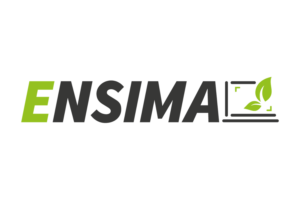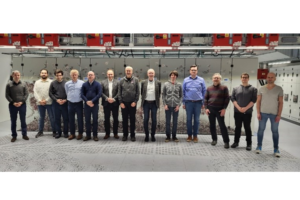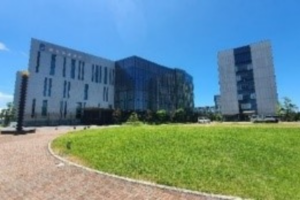
Source: ENSIMA (Gauß-Allianz)
The three-year ENSIMA project (energy-efficient simulation methods for application-oriented computing problems), part of the BMBF’s “Energy-efficient HPS (Green HPC)” program, was launched almost a year ago. The aim of this project is to use AI methods to improve the selection of design parameters in production processes and to accelerate simulation processes through approximate and heterogeneous computing. You can also read our blog post about IT Zauber, another project under this program.
Annual Meeting in Berlin

Source: Own illustration
f. r. t. l. Selami Yilmaz, Semih Burak, Ali Mohammadi, Koutaiba Kassem, Felix Wolf, Christian Terboven, Bernd Mohr, Jan André Reuter, Christopher Woll, Kai Diethelm, Fabian Orland, Lukas Moj
In mid-October, the annual project meeting took place, this time in Berlin and hosted by our project partner and company Gesellschaft für numerische Simulation (GNS). The foundations for the research were laid in the first year. A workflow for optimizing the sheet metal forming software OpenForm using machine learning was designed and is currently being actively evaluated and adapted. OpenForm is a specific software for sheet metal forming that is to be optimized using machine learning. Initial performance and correctness analyses have also been carried out and improvements made.
Future Steps and Focus on Energy Efficiency
The coming project year will focus on energy efficiency. The separate analysis and possible integration of energy as a central resource in the workflow are on the project agenda. The aim is to automate data collection to train the model with a larger amount of data. There are also plans to integrate cloud computing into the workflow to provide an attractive source of access to computing time for companies.
Stay Abroad in Japan
At the same time, there was a stay abroad in Japan, during which Semih Burak worked on his own doctoral research in the HPC group at RIKEN in Kobe and gained insights into compiler infrastructures and static analyses. This stay also allowed him to network with international colleagues and explore Japanese culture.

Source: Own illustration

Source: Own illustration
ENSIMA brings together partners from academia and industry, including RWTH Aachen University, TU Darmstadt, Forschungszentrum Jülich, Gesellschaft für numerische Simulation mbH, GNS Systems GmbH, SIMCON kunststofftechnische Software GmbH and Technische Hoch-schule Würzburg-Schweinfurt. The aim is to reduce the calculation time for sheet metal forming in the automotive industry by 50%, thereby reducing the use of steel and production-related emissions.
The ENSIMA project is a pioneering step towards more energy-efficient simulation methods that will enable a more sustainable future in industry.
Responsible for the content of this article is Malak Mostafa.




